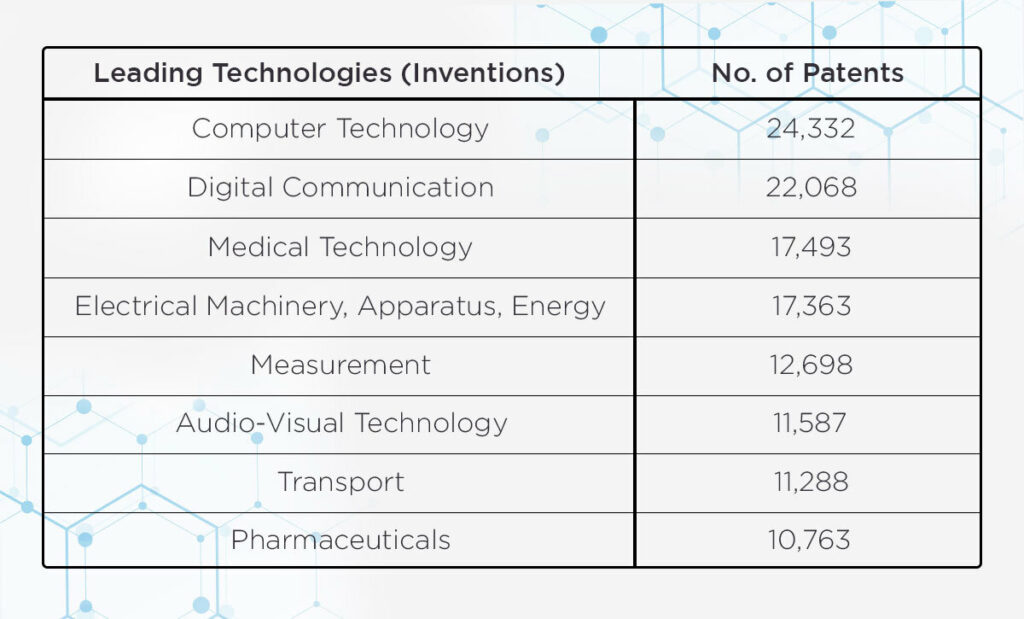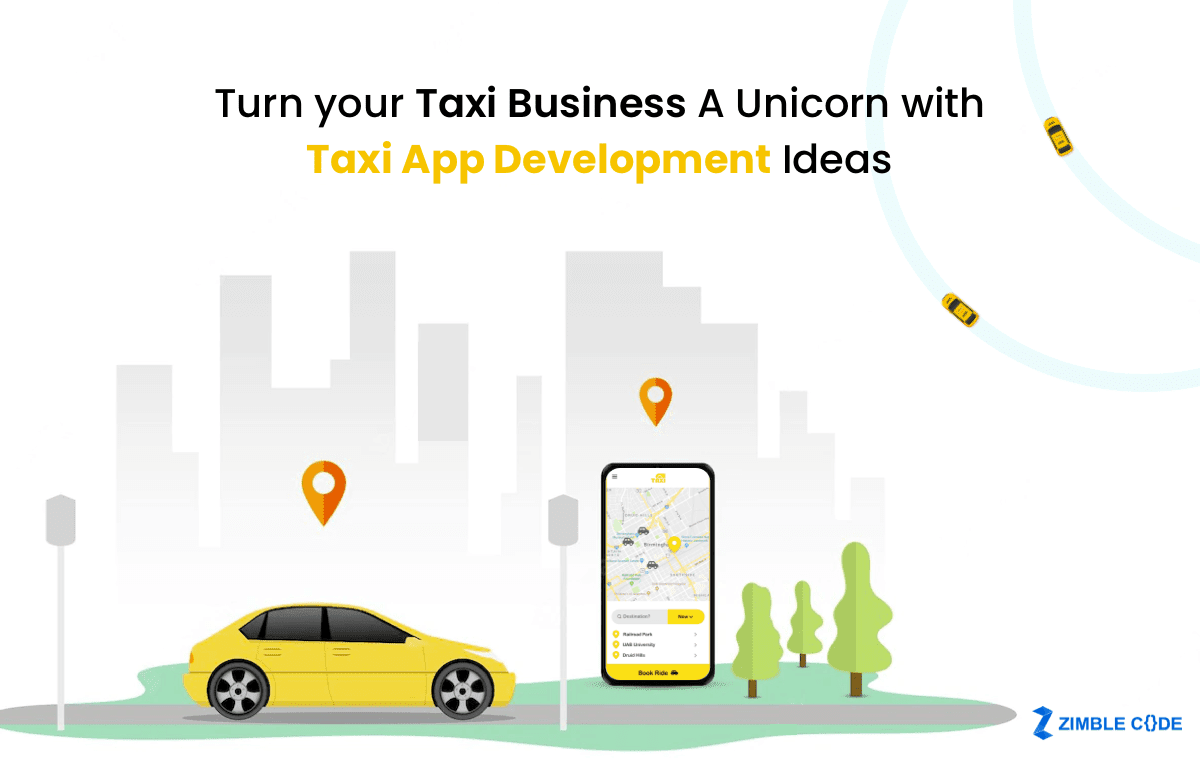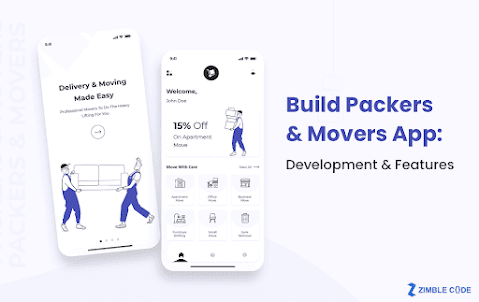Patent Your App Idea To Protect It From Marketplace Copycats
If you have a brilliant idea, it deserves to be protected.
What is a ‘Patent’?
A patent is a legal right awarded to an inventor that excludes anyone else from creating, implementing, sharing, or selling the invention to others without the permission of the original inventor for some time.
The patent system is intended to foster one-of-a-kind and advantageous inventions.
Are you worried that somebody would steal your unique app idea from you and implement it before you can?
So, don’t wait to patent it.
Building an app can be a time-consuming process that may take a few months to a year or two. Several people come to find out about your unique app concept throughout this extended duration, and the chance of stealing and using the app idea cannot be ruled out.
While patents require a significant amount of time and effort, they are also crucial if you want to safeguard your app idea from industry copycats. However, your app concept must be original and inventive to be subject to patent law. It should not be a clone of an already existing app.
So, what steps do you need to take to patent your app? Let’s discuss that now.
App Idea: Can it be patented?
Yes, you can patent your unique app idea. But it’s critical to know what it entails.
Your app’s code cannot be patented because the code itself falls under the purview of copyright law. You can patent the technique or process that the application uses to perform a certain action. Before filing an app pattern, you must ensure that your app concept is unique and should not be comparable to or replicate the idea of an existing app.
Got an app idea?
Bravo!
How about discussing it with a leading app development company in Nottingham, UK to check its feasibility?
What does patenting an app idea exactly mean?
In layman’s language, a patent is a type of intellectual property right that protects your ideas from being exploited without your consent. It grants you the only right to prevent others from implementing or distributing your concept.
Filing for a patent provides you with proof that you were the first to file and so the lawful proprietor of the idea. If your innovation fell into the hands of clever players, they would take your intellectual property and make you pay for it instead. When you patent your idea, it creates a record that can be used to prove that you own the invention.
What are the eligibility criteria to patent a mobile app idea?
Just because applications can be patented in general does not indicate that your app is eligible for a patent.
Novelty And Uniqueness
You must establish whether or not someone else has patented the same type of app idea as you. Before attempting to file a patent, it is advised that you do a patent search.
If your mobile app idea addresses a user problem, it does not automatically qualify for a patent. Your app idea must be novel and non-obvious. In other words, your app idea has not previously been released in a public manner, such as publications, pending patent applications, articles, videos, or other sources.
Do you have a novel and impactful mobile app idea that can shape the future?
Discus with expert app developers in Nottingham, UK.
Invention
Patents are often used to protect inventions. According to the World Intellectual Property Organization (WIPO), a patent is granted to an invention that is described as a solution to any problem. Because the app idea is not a tangible item, the app procedure is classified as a mobile app invention. Nevertheless, the procedure, like any invention, must solve a problem.
Usefulness
Your patent must be “useful.” This doesn’t imply that your app cannot exist only for entertainment purposes. Rather, it means that your app must perform, at least theoretically. This is the limitation that precludes people from patenting something like “a cream that cures baldness” without having any knowledge of biochemistry.
It is what necessitates you to develop a very explicit and comprehensive description of exactly how your app works, rather than simply claiming ownership over an app that achieves some generic goal without you knowing how it will.
What to do if your idea has already been patented?
It might be distressing to learn that your prized invention has already been patented by someone else. However, this awareness is critical to avoid a costly app patent infringement suit later on.
If a patent search indicates that your concept has previously been patented by someone else, don’t give up hope just yet. Examine the patent attentively and consider how you may differentiate your app from the previous invention. You can get some professional assistance in refining your idea from a professional mobile app development company in Nottingham, UK.
As we’ve previously stated, you don’t have to abandon your concept simply because someone else did. You can always innovate and change things to make them fresh and superior.
If you are having trouble looking for existing published and pending patents, you may follow a step-by-step video instruction on how to do so. For international patents, you can also consult the World Intellectual Property Organization’s IPC Catchword Index.
How to patent your app idea?
Here is the process of patenting your app idea-
Provisional Patent Application
You can secure a filing date for your patent with a Provisional Patent Application. Most inventors opt for this method first as it is less expensive than filing a non-provisional patent application and does not necessitate the additional effort of filing a formal patent claim.
This application also necessitates a very thorough explanation of your app idea, and you should include drawings, flow charts, and other graphics to avoid any potential confusion.
You can hence, get an early filing date without the need to devote the entire resources necessary to complete your application. The patent-pending status of one year gives you enough room to determine whether your app will be fruitful.
Non-provisional Patent Application
A non-provisional patent application can be submitted without claiming any priority of application made in a convention nation or without any reference to the app that is already in the process.
It must be supported by a detailed specification and claims. A non-provisional patent application must include information such as a written description of the invention and at least one claim that legally specifies the invention’s metes and bounds.
Regular Patent Application
Within one year after filing the provisional patent, you must file a regular patent. You will lose your filing date if you do not follow this.
Your regular patent application initiates the evaluation process that will determine whether or not you will acquire an actual patent for your app.
Claims
This is undoubtedly the most significant element of the application, and it is likely to be the most contentious.
In this part, you must specify explicitly which components of your app you claim legal ownership over. You will never be able to claim ownership of everything since certain features may be hard to patent or may even come under the jurisdiction of somebody else’s patent.
Specifications
The specification describes what distinguishes your app from others on the market. The specification should be explicit enough that anyone in the field may build your app from zero without needing any extra information from you. It must also specify the “optimal mode” for developing your app, because failing to do so may result in the loss of your patent rights.
The specification consists of title, background, summary, and description.
Drawings
If your app has a visual interface, you will almost probably need to provide numbers and graphic representations of it in your patent. Go through the authorized patents to establish what is standard in your market segment.
So, now you know what all is involved in filing a patent application.
Would you like to check the market scope of your app idea before taking the big step of filing for a patent?
Top app developers in UK can help you.
How much time does it take to patent a mobile app idea?
It typically takes one to three years to obtain a patent for an app concept. The examination process begins with the patent application and is divided down into many components like specification, claims, abstract, and drawings.
Endnote
Should you protect your app idea with a patent? Yes, you should at least attempt it if you believe it warrants the rank of “invention.”
Although the procedure is complex, it is considerably less difficult than dealing with cloned applications stealing your business or an unjustified infringement lawsuit pushing you to cease operations, and you should make every effort to guard your intellectual property.
In case, if you come across any questions about mobile app development or how to develop an app or how to convert an idea into a profit-generating mobile app, get in touch with the best app development company in Nottingham, UK.
Article Resource - https://zimblecode.com/patent-your-app-idea-to-protect-it-from-marketplace-copycats/

.png)




Comments
Post a Comment